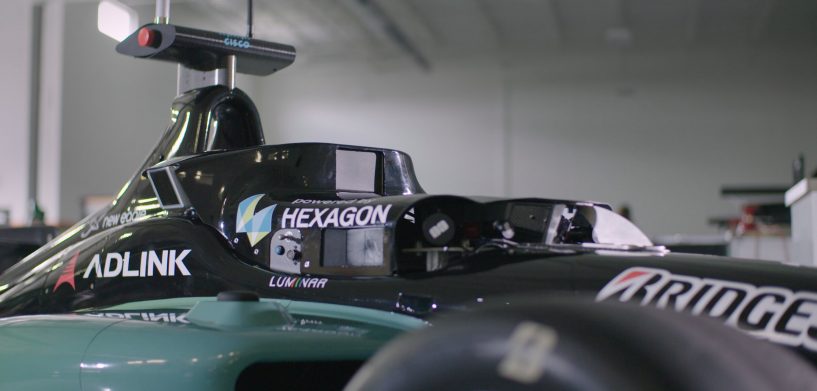Hexagon’s technology is in the driver’s seat and supporting the Indy Autonomous Challenge, a collegiate contest that allows students to compete in the world’s first autonomous race at the famed Indianapolis Motor Speedway.
Innovation has become a key component in the world of auto racing and has continued to challenge what we thought was possible with speed, technology and agility. There is no track in the world that has enhanced these capabilities like that of the Indianapolis Motor Speedway – which solidified its place in racing history in 1909 and is home to the world’s most famous motor racing competition, the Indianapolis 500. What is considered to be ‘one of the greatest spectacles in racing’ will now be joined by one of the most groundbreaking, the Indy Autonomous Challenge.
This university-based competition allows students to modify Dallara IL-15 race cars and compete in the world’s first autonomous head-to-head race at the Indianapolis Motor Speedway. The university teams will race their autonomous vehicles at speeds up to 200 mph to advance autonomous vehicle technology and safety. In addition, this race will establish a connection between innovations that take place on the racetrack and real-world improvements that are possible on highways around the world.
AutonomouStuff and NovAtel, both part of Hexagon’s Autonomy & Positioning division, are putting their skills to work as vehicle sponsors for Clemson University and by donating services and equipment to enable, accelerate and deploy the future of mobility. Hexagon’s involvement in the competition will impact over 500 students by providing the engineers of tomorrow open access to cutting-edge equipment and expertise.
‘The Indy Autonomous Challenge serves as an unrivalled training ground for the next generation of autonomy engineers to work with state-of-the-art technology under the guidance of industry leaders’, said Lee Baldwin, director of off-road autonomy at Hexagon | AutonomouStuff. ‘We voice strong support for this vital aspect of the challenge. When the checkered flag drops on race day, the Indy Autonomous Challenge will not end. The knowledge and experience gained through this exercise will propel the industry forward, driven by student innovation that will help dictate the terms of the next generation of mobility.’
There’s a reason why the Indianapolis Motor Speedway is known as ‘the greatest racecourse in the world’, as it has been home to some of the most significant sports stories in history and has become a proving ground for innovations like rearview mirrors, front wheel drive and brakes. It’s no surprise that it will yet again be home to another moment in automotive history, as 30 university team racecars compete in the first autonomous high-speed race in the fall of 2021.
‘Being a part of the Indy Autonomous Challenge is an incredible opportunity for us’, said Bobby Hambrick, Chief Autonomous Officer for Hexagon’s Autonomy and Positioning division. ‘This is an astounding example of university and industry collaboration that will change the future of motorsports.’
See the university students and Hexagon in action here.

















